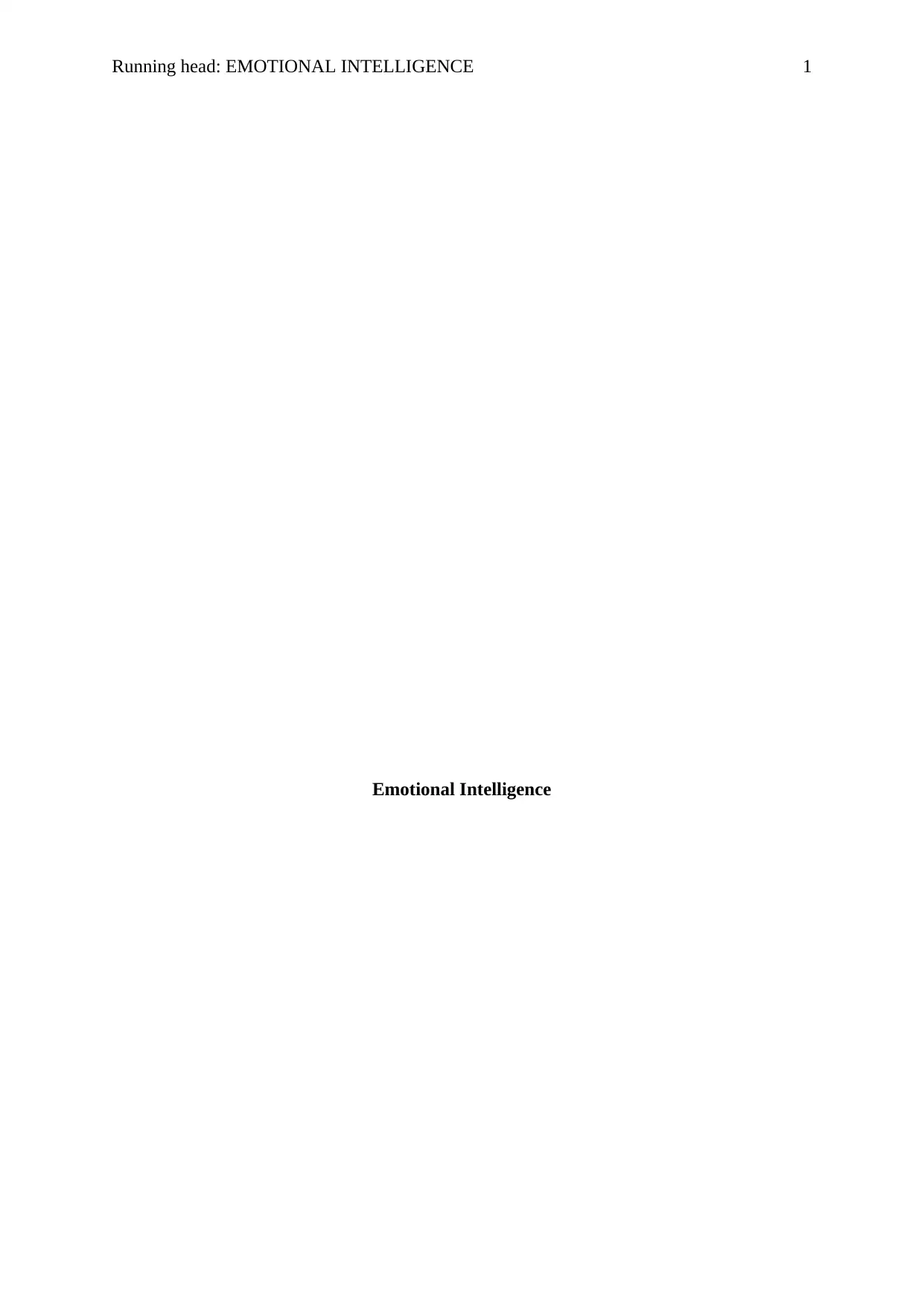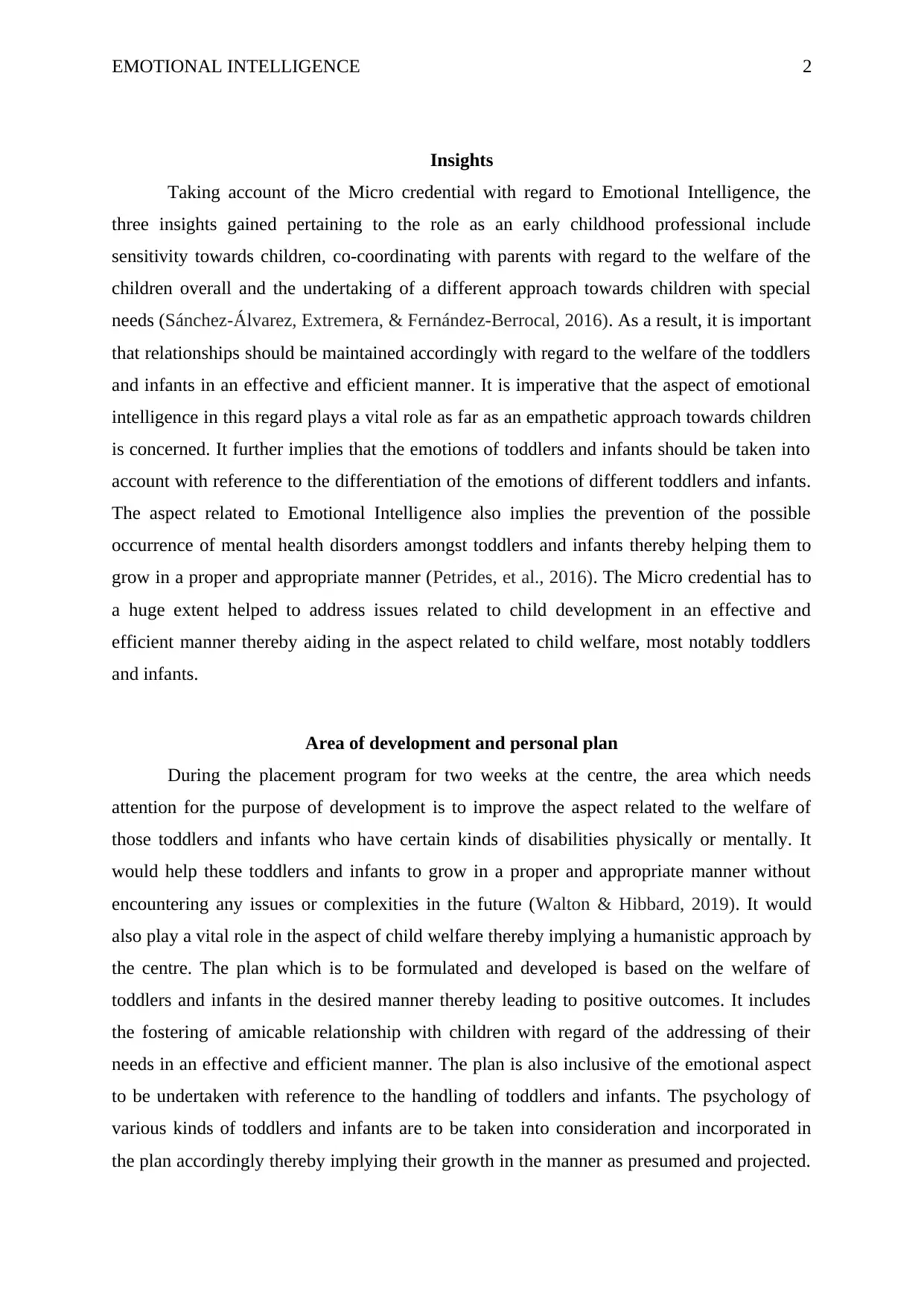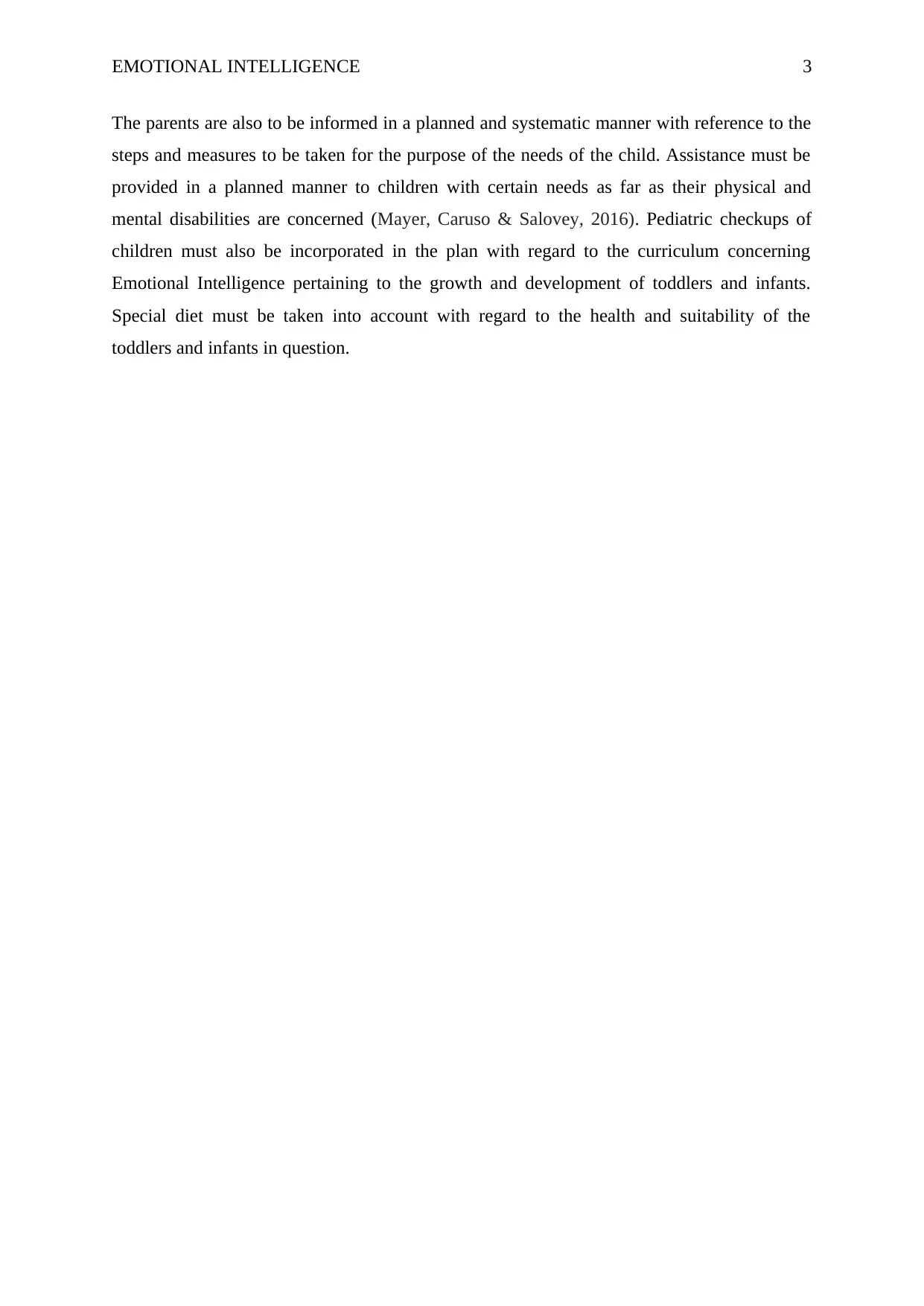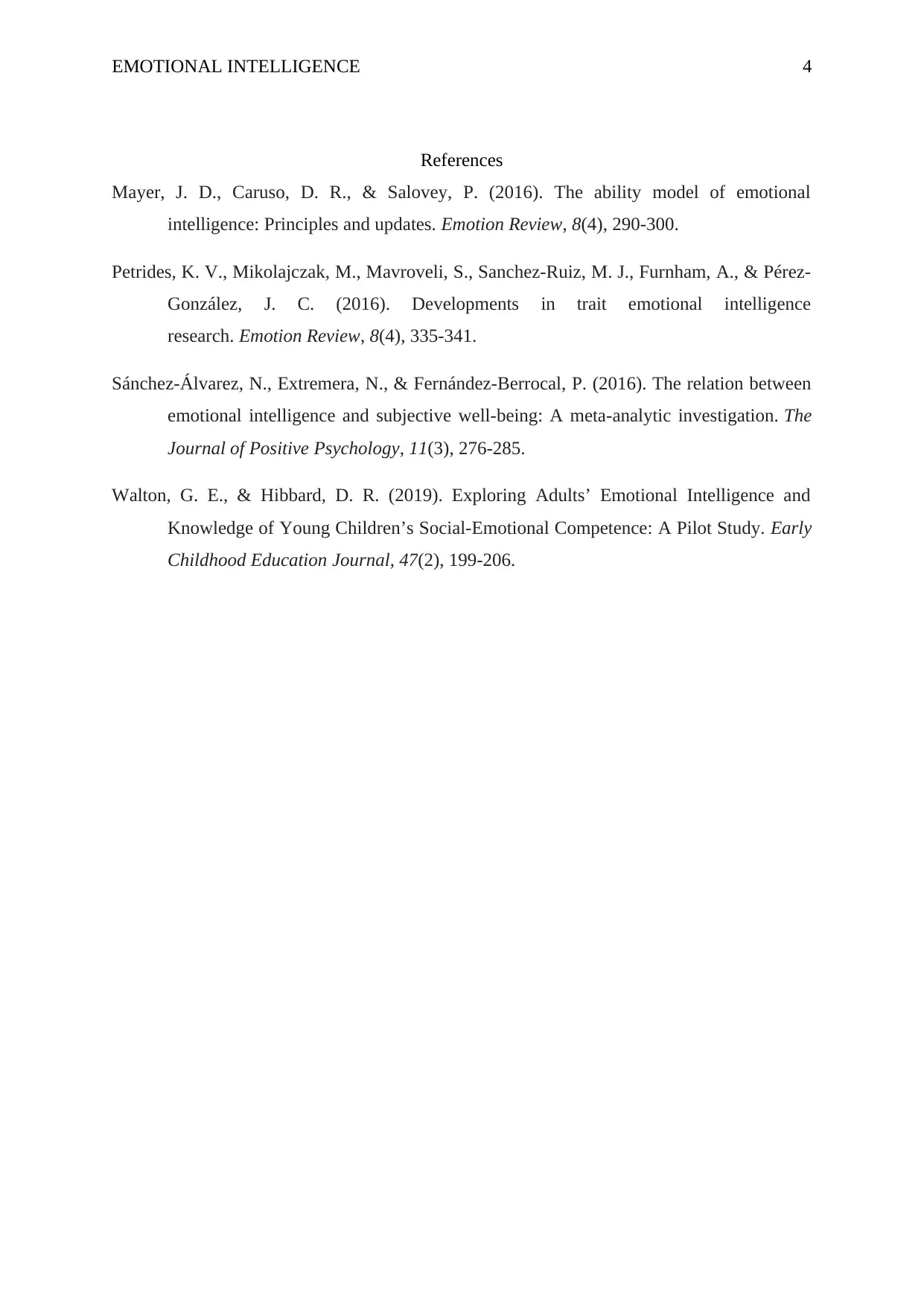Analyzing Emotional Intelligence in Early Childhood Professional Roles
VerifiedAdded on 2023/04/11
|4
|645
|269
Report
AI Summary
This report delves into the application of emotional intelligence (EI) within the context of early childhood education. It highlights three key insights gained from a micro-credential: sensitivity towards children, effective coordination with parents regarding child welfare, and the adoption of tailored approaches for children with special needs. The report emphasizes the importance of empathetic relationships, acknowledging the varied emotional states of toddlers and infants, and preventing potential mental health disorders. Furthermore, it identifies areas for development, particularly in enhancing support for children with physical or mental disabilities. A personal plan is proposed, encompassing fostering amicable relationships, addressing individual needs, incorporating psychological considerations, informing parents, providing assistance, and integrating pediatric checkups and special dietary considerations. The report concludes by referencing relevant research on emotional intelligence and its impact on child development and well-being.
1 out of 4











![[object Object]](/_next/static/media/star-bottom.7253800d.svg)